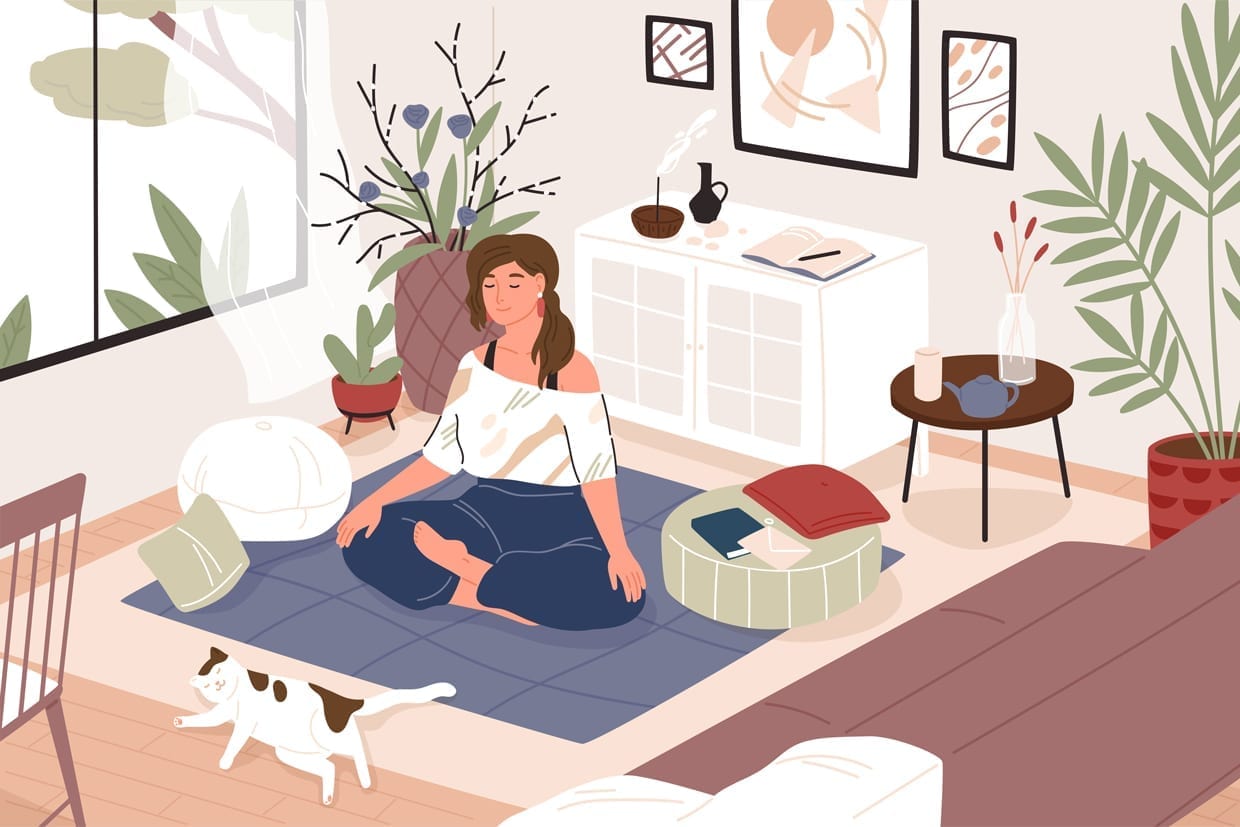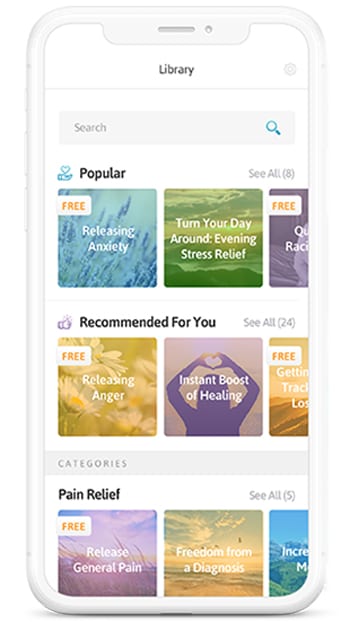How are all of the “catch flights, not feelings” girls doing out there? It has been a difficult time for many as this pandemic has forced all of us to sit down and face our problems, rather than run away from them. A lot of potential triggers can arise during isolation and often we do not know what to do when we feel this way. Many of us turn to unhealthy coping mechanisms in an effort to feel better, only to feel worse.
However, when equipped with the right tools we can utilize this time at home to implement new healthy habits. I spoke to Ryan Haddon, certified life and spiritual coach and meditation teacher, for her tips on how to calm your nervous system, rest and self-sooth when triggered.
What do you do in the coaching sessions?
As a life coach, hypnotherapist, meditation teacher and a spiritual mentor, I work with women and help them figure out where they want to go, what’s in the way, and how they can get there. We primarily focus on our relationship with the self. How we speak, value and perceive ourselves and from there, how that impacts the way in which we respond to the world.
Hypnosis and coaching work so well together, because when you’re discovering things in a coaching session, you might have these big aha moments. Then, in the next session we might do a hypnosis session to get under and figure out what the subconscious meant by it. The subconscious often has totally different beliefs from the conscious mind. Hypnosis helps to align the two, because if the two aren’t aligned, then you’re not going to be able to manifest what you want. You’re going to keep recycling the same things over and over in relationships, work, and finances. You just won’t find fulfillment if you are unaligned.
During this time a lot of people are suffering from stress and anxiety. What is your advice?
We can only be where we are. We must give ourselves permission to have our reactions. The first thing is awareness — notice what’s triggering you. Tune into when you had a big reaction or something or if you feel a contraction in your body. Do you feel a flood of emotion around something that someone said or did? Once you start noticing and witnessing the way things unfold, you can start working on unpacking it.
I think we have a tendency to obsess. It’s important to ask yourself, “is this an obsession?” and just label it that. Sometimes it is easier to stop and say, “This is an obsession and it’s I’m not going to figure it out.” Then to bring the focus back I ask: What am I feeling? What am I doing? What’s mine? What’s my next right action? These questions allow you to bring your focus back into what’s happening here right now, not what’s going on in your head, because you’re not going to sort it out in your head. It’s just how the mind works, always be chewing on something.
What am I feeling? What am I doing? What’s mine? What’s my next right action?
What are some helpful techniques if you are feeling triggered?
What I have my clients do is ask them to identify their triggers. They are like flags on a field. They need attention and need to be healed from within. To help unpack I often ask: What does it mean to you when someone says this to you? How does it make you feel? When was another time this happened in the past?
It’s more that then “I have to be perfect” or “this has to be different.” It’s accepting that you’re a work in progress as a human being. Understanding that you are going to get triggered at certain times because you’re not healed entirely and that’s OK. It’s a journey. When triggered we have old habitual ways of dealing with things that make us feel bad. You know, the flipside of overeating is that it feels good in the moment, but then you feel terrible afterward. Most people come to me because they’ve outgrown those negative coping skills, and they’re tired of picking up a hammer when they really need a wrench. It’s my job to help people get some new tools in their toolbox to manage life.
What would some of those tools be?
- It’s about being present with yourself, noticing what triggers you. That’s a big one. Noting, “Oh, it’s happening. Nothing’s wrong.”
- When you take three deep belly breaths, you change the chemistry in your brain. We take it for granted as we breathe all day, but three conscious breaths re-calibrate the system.
- Tapping (emotional freedom technique). There’s an app The Tapping Solution that was developed by the Ortner siblings. Tapping melds Chinese acupuncture, with acupressure and word psychology. It’s great for acknowledging how you move through these points while saying whatever is really going on for you.
- Sometimes when we’re triggered we start speaking to ourselves in a negative way. Just sit down and give that voice, a platform to speak and to move through, to move out of you onto paper. And then you can start connecting dots. Sometimes reading over that writing with someone you trust is also helpful so you can pull it apart together.
- Meditation walk. You’re moving your body, you’re in motion, and then you can start bringing in your five senses. It’s really grounding and helps to bring the blood pressure down. You are conscious of the air around you, mindful of what you are seeing and taking note of the world around you.
- Repeating a mantra. I would say “all is good, I am well” or if you are a spiritual person “god is good, I am safe” on the in breath and on the out breath. I do Kundalini yoga, so my word is “Satnam”. Many spiritual or religious traditions have sacred syllables and sounds that have a powerful synergy.
- Doing a gratitude list. Ten things every day. I kept a 365-day gratitude list and it’s a remarkable thing to do because the first week or two you’re like, “Yeah I love my kids I love my cat” but as it progresses you want to keep finding things. So, what happens is as you get a hot latte, you’re like “that’s going to make the list” and then during your day, you start to notice, and you start growing out your gratitude in your day. What that does is it brings you into presence, it brings you into mindfulness in your day and acknowledging good as it is happening on the ground which is powerful.

- Write a list about what your self-talk is. How do you speak to yourself in a day? What’s the climate? What are you marinating in? Then start actively trying to wedge in cunningness, compassion, empathy, support throughout your day because inevitably people are staggered by how cruel they are to themselves. They wouldn’t dare speak any one else in that way.
- They are a great tool in the moments when you feel your own intolerance or self-judgment. You can say “I’m doing the best I can and that’s good enough.” And just keep doing it. If you fake and artificial, it doesn’t matter. It’s not sitting in the morning going, “I am great. I am good. Things are nice. I am happy.” That isn’t going to hold through the day. But they are really helpful for those moments when life is in session.
We only recommend products we have independently researched, tested, and loved. If you purchase a product found through our links, Sunday Edit may earn an affiliate commission.









